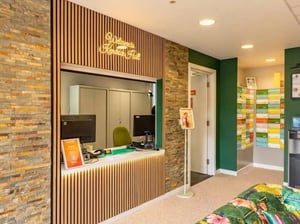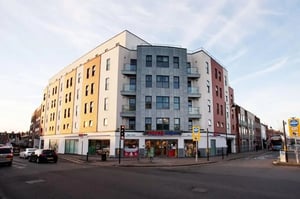

(6 Properties)
Reading is one of those cities that doesn’t scream for attention — and that’s exactly why students end up loving it. It’s efficient, well-connected, and quietly confident, which makes daily life feel structured rather than chaotic. For students who want a city that supports focus while still offering things to do, Reading gets the balance right without trying too hard.
One of Reading’s biggest strengths is how functional it feels. Everything is laid out with purpose. Transport links are excellent, everyday amenities are easy to reach, and the city rarely feels overwhelming. This practicality is a huge reason why student living Reading feels manageable even during the busiest academic weeks.
The city has a strong professional presence, which gives it a mature, grounded atmosphere. Students share the city with working professionals, families, and long-term residents, creating an environment that feels realistic rather than temporary. This mix helps student living Reading feel more independent and less like a bubble that disappears once term ends.
Location is another major advantage. Reading sits in a prime position within the UK, making it one of the most connected student cities outside London. Quick rail links open up opportunities for commuting, internships, placements, and weekend travel without needing to relocate. For students balancing academics with career goals, this connectivity adds serious value to student living Reading.
Despite its professional edge, Reading still offers plenty of space to unwind. Green areas, riverside paths, and open spaces provide a mental reset when lectures and deadlines start stacking up. Students often underestimate how much these quieter spaces contribute to wellbeing until they become part of the routine. In Reading, stepping away from the grind doesn’t require elaborate planning.
Socially, Reading is steady rather than overwhelming. It doesn’t demand constant participation, but it’s never dull either. Cafés, casual food spots, and social venues are woven naturally into the city, making it easy to meet people without forcing interaction. This low-pressure environment is one of the reasons student living Reading appeals to students who prefer balance over constant noise.
The city also supports a healthy academic mindset. Because Reading isn’t built entirely around nightlife or tourism, students often find it easier to maintain structure. Days have rhythm. Weeks feel productive. This makes it easier to manage time, stay organised, and avoid burnout — something House of Students always encourages students to think about early.
Reading’s affordability sits in a realistic middle ground. It’s not bargain-basement cheap, but it offers value when you factor in location, infrastructure, and lifestyle. Students often find that the city allows them to prioritise comfort and convenience without excessive financial strain, especially compared to larger cities nearby.
Another underrated advantage is how easy Reading is to navigate. New students settle quickly because the city doesn’t feel confusing or fragmented. Key areas connect logically, transport is reliable, and routines form fast. That ease of adjustment plays a big role in helping students feel settled during their first few months.
At House of Students, we often describe Reading as a city that respects student time. It doesn’t complicate daily life, demand constant adaptation, or distract unnecessarily. Instead, it supports focus, growth, and independence — the things that actually matter during university.
Ultimately, Reading is a city that works quietly in the background. It gives students the tools to succeed without overwhelming them. And for many students, that’s exactly what makes student living Reading not just practical, but genuinely enjoyable.


Explore beautiful and popular places to stay with all the comfort of home.
Show properties
Show properties
Show properties
Show properties